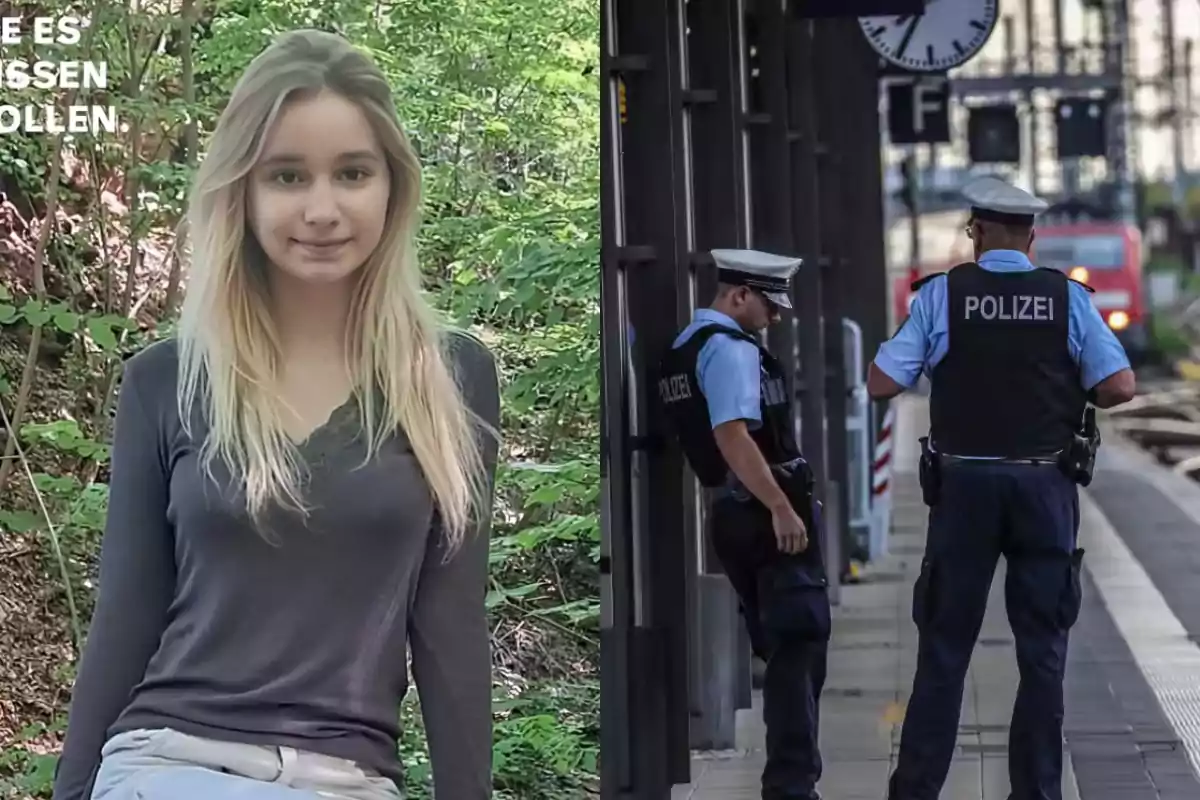
Germany: An illegal Iraqi immigrant murdered a 16-year-old girl and could be released
German justice is assessing whether the murderer can avoid prison under the pretext of an alleged psychiatric illness
The tragedy that has shaken Germany has a name: Liana, a young woman just 16 years old, a Ukrainian exile who had managed to rebuild her life in Germany after fleeing the war. Her future as a dental assistant was brutally cut short when an Iraqi immigrant in an irregular situation, with a current deportation order, pushed her onto the train tracks as a train was passing by.
The episode occurred when the minor was returning home after classes. A group of foreigners began to follow her, which led her to desperately call her grandfather: "They're following me and I'm scared," were her last words before a scream of terror cut off the communication. Initially, both the police and local media spread the version of a suicide, but the family flatly rejected that hypothesis and demanded a thorough investigation.
Una joven alemana de 16 años fue acosada y luego tirada abajo de un tren por un inmigrante ilegal iraquí, causando su muerte. El asesino, actualmente recluido en un centro psiquiátrico, podría evitar el castigo alegando supuestos problemas mentales.
The investigation confirmed what was feared: it was not a voluntary act, but a planned and brutal murder. The perpetrator, far from being sent to prison, was referred to a psychiatric clinic, where experts are evaluating his "mental state". If he is declared not criminally responsible, he could avoid a prison sentence and remain under medical care, a possibility that outrages public opinion and fuels the debate about the leniency of migration and judicial policies.

Meanwhile, while Germans demand justice for Liana, the Executive continues to admit new groups of foreigners. According to the newspaper Junge Freiheit, this Monday 47 Afghans arrived in Hanover, part of the 2,300 people to whom Berlin promised asylum after the Western withdrawal from Afghanistan in 2021. Although hundreds remain trapped in Pakistan—with 450 arrested and more than 200 already deported without documents to return to Kabul—the courts reminded the government of its "legal obligation" to fulfill those admission commitments.
Upon arrival, the newly admitted individuals were received at the Friedland border transit camp, to then be distributed among different federal states. An image of open doors that contrasts with the pain of a Ukrainian family and with the indignation of an entire country that wonders how an illegal killer was able to move with impunity until he took the life of an innocent teenager.
More posts: